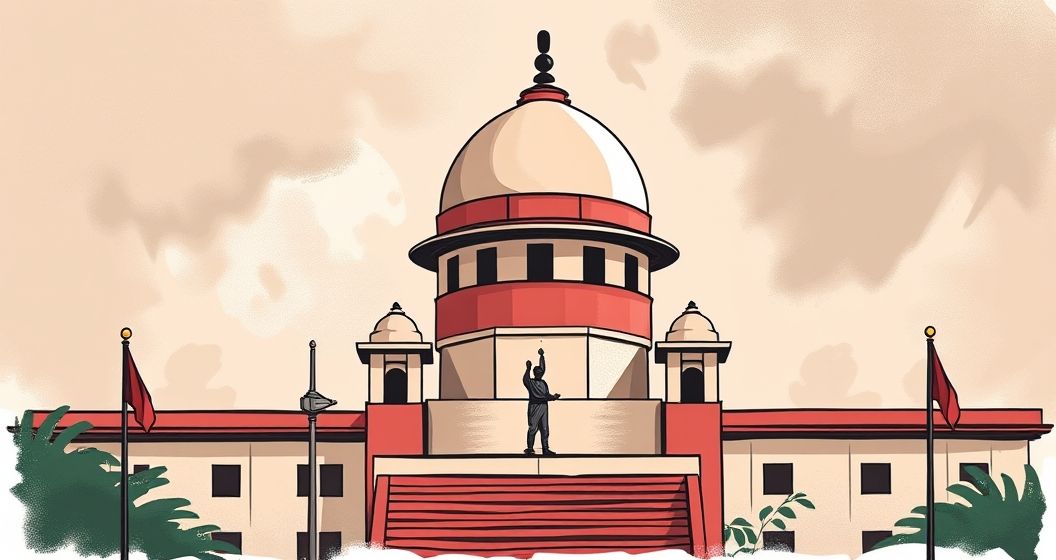Supreme
The Supreme Court on Wednesday (October 8, 2025) set aside the conviction and death sentence of Dashwanth, a Chennai-based engineering graduate, accused of raping and killing a seven-year-old girl in Mugalivakkam in 2017. The Court said the prosecution had “miserably failed” to establish his guilt beyond a reasonable doubt and found serious lapses in the investigation. A Bench of Justices Vikram Nath, Sanjay Karol, and Sandeep Mehta acknowledged that acquitting an accused in such a “heinous offence” could cause “societal distress,” but said the court could not be swayed by “moral conviction or conjecture.” “We cannot ignore or bypass the fundamental principle of criminal jurisprudence that the prosecution is duty-bound to prove the guilt of the accused beyond a reasonable doubt. However, regrettably, the prosecution has miserably failed to do so in the instant case,” it said. The Court noted that although it could have remanded the matter to the trial court for a fresh trial, it was more appropriate to decide the case on merits since the accused had been in custody for nearly eight years owing to “protracted proceedings of trial and appeal.” The Court also pulled up the police for failing to collect crucial CCTV footage, noting that such conduct warranted an “adverse inference” against the prosecution. “Failure to collect the data from the Digital Video Recorder (DVR) of the CCTV camera creates a grave doubt on the bonafides of the Investigation Agency. It seems that the Investigation Officers were intentionally trying to screen the truth from being brought on record and wash their hands off the matter, by making the appellant, a scapegoat,” the judgment authored by Justice Mehta said. “We have minutely gone through the judgments of the High Court as well as the trial Court and find that while coming to the respective conclusions regarding the guilt of the appellant, the trial Court and the High Court glossed over these patent infirmities and loopholes in the case of the prosecution,” the court said. ‘Lopsided trial’ The Bench also found that the trial was conducted in a “lopsided manner and without due deference to the principles of fair trial.” It noted that the accused had been denied legal representation until the charges were framed, undermining his right to an effective defence. “In a case where an accused is facing charges for offences which carry capital punishment, this constitutional mandate becomes even more sacrosanct, and it is the duty of the Court as well as the State to ensure that the accused is not prejudiced or deprived of a fair opportunity of defending himself in a case where he may be awarded death penalty,” it said. The case pertained to the abduction, sexual assault, and murder of a seven-year-old girl who went missing from her apartment complex in Mugalivakkam on February 6, 2017. The Chennai police arrested Dashwanth, a resident of the same building, alleging that he had lured the child away with a dog before sexually assaulting and killing her. The Chengalpattu Sessions Court sentenced him to death on February 19, 2018, and the Madras High Court upheld it on July 10, 2018.
Details
eyond a reasonable doubt and found serious lapses in the investigation. A Bench of Justices Vikram Nath, Sanjay Karol, and Sandeep Mehta acknowledged that acquitting an accused in such a “heinous offence” could cause “societal distress,” but said the court could not be swayed by “moral conviction or
Key Points
conjecture.” “We cannot ignore or bypass the fundamental principle of criminal jurisprudence that the prosecution is duty-bound to prove the guilt of the accused beyond a reasonable doubt. However, regrettably, the prosecution has miserably failed to do so in the instant case,” it said. The Court n
Conclusion
This information about Supreme provides valuable insights.


